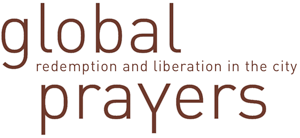In her Global Prayers project, the geographer Miriam Stock looks closer into different forms of urban religious mainstreaming analyzing Islamic fashion economies in Berlin-Neukölln. In recent years, the consumer landscapes of long-time underclass district Neukölln have been facing increasing commercial gentrification. This has not only led to the typical gentrification’s infrastructure such as bars and cafés of a mainly young white middle class. Many Islamic boutiques have also spread throughout the neighborhood, selling day and evening wear and serving to an increasing Berlin Muslim Middle Class.
Starting from this observation, Miriam Stock chooses three examples to highlight entrepreneurial practices of distinctions in branding Islam in Berlin. The selected boutiques and economies differ quite strongly from each other in regards to their fashion styles, their sourcing and cultural references, as well as their physical and virtual interaction with urban society. The Turkish boutique "Rida Gym" brands a cosmopolitan Turkish style and obtains her designer coats and shawls directly from Istanbul, Ankara and Izmir. The Arab boutique "Hoor al Ayn" in contrast sells Qu’ran conformist clothes from Jordan, Egypt and the Gulf thereby staging an orientalized authenticity with their black and glitter embroided dubai-abbayas. The facebook-label "Arts of provoganda" finally produces bags and mobile bags with the ambivalent logo "Islam.ist.in" (literally: Islam is in) and mixes calligraphic textures with modern copy right symbols.
These different forms of mainstreaming Islam in Berlin refer to different positionings towards religion as well as urban society in Berlin. The German-Turkish business woman represents a modern privatized Islam with her Turkish fashionized facebook page which at the same time she displays discreetly in her shop to an urban public. The boutique Hoor al Ayn in contrast is located in the centre of an Islamic community next to a mosque. Its website and facebook such function as an interactive platform, a German translated sura of the Qu’ran on the shop window longtime openly displayed believes to an urban public which has caused wide reactions among different political groups in Berlin. The label "Arts of provoganda" finally targets directly an urban public from the perspective of an Islamic conservative subculture and wants to challenge anti-Muslim racism in a creative way in day-to-day urban interactions. Finally, the three economies have also something in common: They all use typical gentrification styles such as retro wallpapers, stylistic fonds or minimal designs and thus are integrated in their ways into late modern consumer cultures of Berlin.
